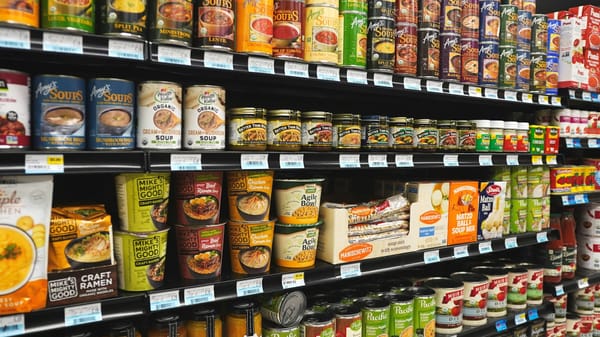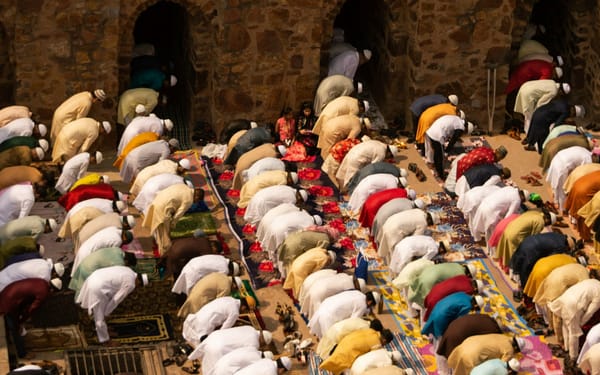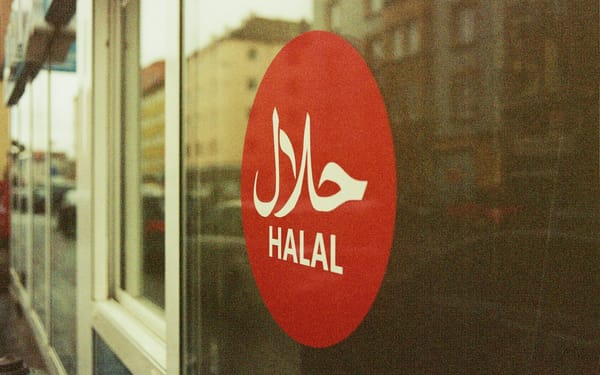Devon Islamic Finance Review

In secular societies, people of faith must sometimes make difficult decisions about business and finance. They can opt to resist anything that counters conscience and belief. Alternatively, they can subordinate religious principles altogether as a matter of convenience. A third path is to discern a possible middle path whereby sacred lifestyles can co-exist with a system that is decidedly worldly. Like other Islamic finance companies, Devon Islamic Finance adopts practices that conform to Shariah values while operating in an economic system that does not. This review aims to examine three facets of this company:
- Establish the history and mission of Devon Islamic Finance
- Lay out Devon’s business model and Islamic credentials
- Discover what scholars and customers say about Devon as a lender
About Devon Islamic Finance
Dating back to the middle of the 20th century, Devon Bank originally conducted business as Devon North Town State Bank. North Town was the Chicago neighborhood where the bank was located and the target market for Devon’s services. As a family-owned enterprise from the start, the bank saw many changes that tracked with community evolution over the ensuing decades. In a sector of Chicago that serves as home to east Asians, Russians, Middle Easterners, Jewish people and Romanians, among others, the staff at Devon caters to this rich cultural diversity.
Comprising a large portion of Devon Bank’s customer base, the Muslim community represents unique and welcome opportunities for this institution. Responding to this potential, Devon instituted an Islamic financing division in 2003 that now operates in 34 states. The bank and its Islamic outreach seek to make the American Dream of home ownership accessible to as many customers as possible. In so doing, they attempt to craft finance policies and practices that respect religious convictions, while making real estate affordable.
Among the first non-sectarian banks to offer products to the Islamic community, Devon Bank was followed by some heavy hitters in the American financial realm: Citigroup, JP Morgan Chase and Deutsche Bank, to name a few, have each developed financing organizations for Shariah-conscious Muslims. Internationally, this market is worth $700 billion. Outside of these national and global institutions, Devon Bank ranks among the top financiers for Muslims.
Devon Business Model
Devon Islamic Finance follows the principle of murabaha (for example: a seller and buyer come to an agreement over the cost of an asset and an appropriate mark-up, or profit to the seller. This arrangement is also called “cost-plus” financing. Since the customer is basically paying Devon for a property, the logic goes, it is no more haram than paying retail for anything. Transactions proceed according to the following sequence:
1. The buyers locate and select a home for purchase. They negotiate and sign the contract with the sellers. When the sale closes, the buyer assigns the contract to Devon, which then purchases the house.
2. The home buyer and finance company work out an acceptable sales price, which factors in the first purchase price, the down payment, the repayment term and the expected return on the first purchase price as set by Devon’s investors.
3. Devon then sells the house to the customer at the agreed-upon price. Devon gets the down payment immediately and the remainder of the sale price over the term of the contract with the customer. The price is paid in fixed, interest-free installments.
4. With the murabaha debt secured by the property, and the down payment in hand, Devon conveys ownership to the customer, subject to the terms of their contract.
Under Devon’s structure, the finance company acts as a “middle-man” between property sellers and those who want to buy. The latter can not afford the homes on the sellers’ terms, but the finance company can. So, Devon buys the houses on its customers’ behalf and then replaces the terms with those that buyers can sustainably fulfill. Those who have purchased a home through Devon will notice that Devon Bank was listed on their Deed as the owner of the home since they purchased the home from the seller and then turned around and sold it to you the purchaser.
CONVENTIONAL MORTGAGE: Buyer signs sales contract --> Buyer acquires mortgage loan from bank --> Seller conveys property to buyer --> Buyer pays bank the loan amount and interest for the privilege of borrowing --> Buyer owns house free and clear
MURABAHA: Buyer finds house and signs sales contract --> Buyer and Devon agree on new purchase price --> Buyer assigns contract to Devon --> Devon buys house from seller for original price --> Devon sells house to buyer at new price --> Buyer pays Devon its sales price over a set term
Devon does assess a late payment penalty to cover its costs and no more. In some instances, the company waives the fee due to confirmed hardship. A word about foreclosure: Devon Bank’s traditional mortgage products are structured as foreclosable loans. It would be odd if Devon Islamic Finance did not provide for this remedy with regard to non-paying customers. The word “foreclosure” does appear in the website’s glossary.
As a for-profit business, Devon Islamic Finance sees no conflict between the cost-plus model and Shariah financing rules. Murabaha customers pay for the property as opposed to paying for money to buy the property. Thus, per the company, these transactions are halal.
Monitoring Halal Business Practices
The parent entity, Devon Bank, is not a strict Islamic business. Yet the Islamic finance arm must meet certain financial criteria to legitimately serve its Muslim constituency. To add scholarly heft to its assertion of Shariah compliance, Devon Islamic Finance draws its legitimacy from the Shariah Board of America, the organization that gave approval to Devon’s product offerings.
Devon Islamic Finance does not retain its own Shariah supervisory board, or at least does not advertise one. Whether this is a problem for prospective customers or not is difficult to discern. A review of the Shariah Board of America website does not highlight matters of Islamic finance nor do recent fatwa focus on them. So, ongoing scrutiny of Devon’s contracts may or may not be a reality. A survey of opinions relative to Devon’s Shariah bona fides is below.
Devon Islamic Finance Products
Home Purchase
The Devon house buying process is outlined above to illustrate the cost-plus business model. Devon boasts excellent customer service and “competitive rates.” That is to say that the profit Devon takes from its financing contracts is similar to what one would pay a mortgage lender in interest for a non-halal loan. Documents are all approved by Mufti Nawal-ur-Rahman and the Shariah Board of America (SBA). As a minimum down payment, Devon Islamic Finance likes to see five percent of its sales price to the customer up front.
The murabaha way of finance can involve the customer paying two transfer tax obligations since two conveyances, seller to Devon and Devon to buyer, take place. The plus of cost-plus financing is, as described above, pegged to four variables. The original cost of the house, the size of the customer’s contribution to the purchase price, the number of months in the term of the loan and the expectation of Devon investors regarding what sort of revenue the transaction produces.
Devon Bank sells its home mortgage loans to Fannie Mae, Freddie Mac and other government-backed concerns that exist to stimulate lending and home ownership. These institutions have been buying Islamic financial contracts for at least 20 years. It stands to reason that upon assumption of the contracts, standard foreclosure proceedings ensue in the event that payments cease. Any equity accrued is lost when this occurs.
Residential Refinance
How does the murabaha design for somebody already in the home? Sometimes, Muslims with a conventional mortgage are convinced that they should switch to halal financing. Others see an opportunity to obtain monthly remittances more favorable to household cash flow. Devon Islamic Finance caters to all three desires.
The abundance of halal financing institutions and products today was not the reality 30 years ago. Many Muslims received traditional interest-based mortgage loans for lack of many alternatives. Today, however, Devon and other Islamic finance companies actively market the Muslim-American community. Faithful believers are responding and converting the old mortgages to halal financing options.
They can refinance into a murabaha product and be free of interest forever. Often, these customers find that their payments are comparable to the mortgage remittances they were making before.
A drop in the rates in the financial markets signals Devon investors that they can do business with modified revenues. So, customers can seize this opportunity to refinance their own contracts with Devon, obtaining a decreased monthly payment and a modified contract term.
Those who are well into their contracts may see the need for home renovation, debt consolidation or other contingencies that demand significant financial resources. In such cases, Devon offers a cash-out refinance product where the customer takes the accumulated equity in the form of cash while assuming a greater debt obligation.
Commercial Financing
Devon Islamic Finance makes a high priority of supporting mosque buildings (masjid) and other edifices that serve the Muslim religious mission. Murabaha and ijara (rent to own) arrangements are possible under Devon financing, depending on which state the subject property sits. Acknowledging that commercial products are tricky when it comes to conforming to Shariah, Devon Bank nevertheless works with religious organizations and businesses in the following commercial endeavors:
- Acquiring and expanding on existing properties
- Extending lines of credit to property owners with sufficient equity. These can involve large or small draws, covered by a single murabaha letter of credit or multiple letters for each draw.
- Financing for new construction and physical expansion
- Financing for business equipment and other necessities
Retail Banking Services
Devon Islamic Finance customers have access to the consumer services offered by Devon Bank. A free checking account with no minimum balance along with a debit card and online banking are but a few conveniences. The debit card can be activated to round up to the next full dollar amount. The change that accrues is saved, donated to charity or applied to the contract balance.
A number of side benefits come with an account at Devon Bank, identity and cell phone protections, discounts on shopping recreation and travel along with health savings accounts. Devon structures accounts to be interest-free for Muslim customers.
Devon Islamic Finance and Shariah
As noted above, the Devon murabaha model and documents have the approval of the Shariah Board of America. This means that Devon transacts business with its customers in a halal manner, according to SBA, and conforms to the guidelines of Shariah finance. Yet the SBA website contains little information on finance other than an offer of financial counseling. How it arrives at its conclusions relative to the Quran is unclear.
One body of scholars that has much to say in this area is the Assembly of Muslim Jurists of America (AMJA). While acknowledging the permissibility of doing business with Devon Islamic Finance when pressed by urgency, The AMJA nevertheless takes issue with a number of aspects of Devon’s murabaha and ijara programs.
- There is doubt whether Devon is in full legal possession of a property while preparing to sell it to the customer.
- AMJA questions the justice of Devon Bank receiving exclusive beneficiary rights from the homeowner insurance policy while the customer is responsible for 100 percent of the premiums.
- Per AMJA, the bank has a right to put a hold on a customer’s account on the mere uncertainty of whether the customer will continue payments, even if payments have continued unabated.
- The jurists find a lack of clarity as to whether a customer is in default for not using the property as a residence, even if the customer is deceased and the heirs are maintaining the payments.
Regarding Devon’s ijara financing, AMJA contends that:
- The company is putting its customers under two contracts (lease and sale) simultaneously.
- The company retains the demand for continued payments from a customer, even after said lessee has been evicted.
- The company does not maintain the home when searching for a new renter.
- As with murabaha financing, Devon gets the money on insurance claims while the lessee pays the premiums.
This is not the first time two sets of Shariah scholars are in interpretive conflict. Prospective customers may wish to examine these discrepancies more deeply.
Insurance Costs and Benefits
In a traditional mortgage situation, the bank sees the property as collateral for its loan. Therefore, it has a vested interest in an intact house and lot. Should fire or accident cause the destruction or degradation of the house, the lender wants to know that it will be compensated for this loss to its investment. This is why they require borrowers to carry sufficient homeowner insurance and will collect monthly premiums with the mortgage payment.
Shariah precepts frown on such a relationship, mainly because the borrower is buying a product the use of which is unpredictable or undetermined (gharar). In other words, the beneficiary may never need to make a claim but is paying for the benefit just in case. Of course, there is the argument that the insured is purchasing a form of surety, IE. safety against certain eventualities.
Still, observant Muslims can avoid the shadow of gharar by using an insurance provider that re-distributes unused funds back to its pool of policy holders. When shopping for finance, prospective customers should ask Devon if they can select their own insurer. Doing so might blunt the AMJA objection.
Simultaneous Contracts
In his Fundamentals of Islamic Finance and Banking (John Wiley & Sons: Hoboken, NJ, 2018), Professor Syeda Fahmida Habib comments on ijara contracts:
“…it is an arrangement that does not comprise two contracts in one bargain; in fact, leasing is the real and the major contract; therefore, it is subject to all Shari´ah rules of an ordinary operating Ijarah contract. The transfer of ownership is processed through a separate sale or gift contract.”
In brief, the author contends that there are not two contracts governing the transaction simultaneously. Instead, one contract picks up where the other leaves off. Of course, the substance of the contracts turns on the details which are unavailable to this reviewer. Again, customers, or their attorneys, should study all documents carefully to see if this is the case.
In the Event of Default
It could be that Islamic financier websites say little about foreclosure and similar penalties because these are rare and complicated events. On the face of it, the AMJA criticism of Devon treating estates of the departed as being in default might not appear to be justified.
Again, using a parallel with the traditional mortgage lending industry, residential properties are underwritten as primary residences, second homes or investment properties. Primary housing poses the least risk to the lender since the borrower depends on the property as a principal place to sleep, eat and raise a family. It is not as easily disposed of as a vacation home or investment real estate. The mortgage document, in fact, has an occupancy clause inserted for those loans where collateral is the primary domicile. As a practical matter, most banks and lenders would not concern themselves with occupancy if payments are timely and consistent.
Although halal transactions are distinct from the usual fare, if an occupancy clause is in the contract, the finance company certainly has a legal right to seize the property. Physical absence of the named client represents a risk to the investment that Devon, or any other bank, did not account for at underwriting. Furthermore, heirs have an obligation to tell creditors if the customer passes away. Ultimately, persons considering Devon Islamic Finance must decide whether enforcement of the occupancy clause is halal or not.
When a Customer Looks like a Default
AMJA contends that Devon freezes the deposit accounts of customers who might not continue with timely payments. This is a difficult scenario to understand without having the facts of each case. What is known in financial circles is that banks do have authority to freeze accounts under certain circumstances:
1. They have evidence that the account holder is engaged in criminal or suspicious activity,for example, money laundering, drug trafficking, terrorist sponsorship or other forms of fraud.
2. Creditors obtain a judgment against the customer that instructs the bank to release funds to them. If the bank itself is the creditor, as with a home loan or personal installment loan, no such legal action is required to place a hold on the account.
3. The U.S. government comes after the customer’s assets because of unpaid taxes or federal loans.
Clearly, the Muslim jurist organization speaks according to religious doctrine and not civil/criminal law. The complaint, again, is that Devon froze accounts because it predicted defaults that had not yet happened. This should necessitate a careful review of contractual documents from application to closing.
Does Devon Have the Right to Sell?
Finally, the AMJA questions whether Devon Bank legitimately holds title to the properties it then sells to customers at a mark-up. The official language reads: “This contract is surrounded by doubts concerning whether the bank truly owns the property before it is readied for sale.” Unfortunately for future customers, the jurists do not elaborate. However, the Shariah Board of America, in a response to an online query cited the murabaha model of cost-plus, stating clearly that the financier “buys a house and takes its complete possession…”
So, if the body that approved the Devon Islamic Finance template for assisting home buyers states that the bank should take complete possession of the property, then the problem lies in practice and not in the model. The information upon which AMJA makes its claim is not public. Still, interested parties do have one avenue to bolster or weaken the accusation. Devon customers with transactional experience can testify as to the integrity and professionalism of this Islamic finance company.
Customer Response to Devon Islamic Financing
Client testimonials assembled and published by Devon are, not surprisingly, effusive in praise. Customers are particularly touched by the courtesy and friendliness of representatives, who were also found to be knowledgeable and patient communicators. Some confess to having been stung by ostensibly Shariah-based lenders in the past. They express gratitude to Devon for its authentically halal financing process. These accolades are appropriate for the company’s website, prospective applicants want to know that those who went before them were satisfied.
That said, a check of the more neutral consumer forums is also very much in order. Devon Bank gets 3.6 out of five stars on Facebook. Those expressing satisfaction note individual loan reps cooperation and assistance. Angry reviews cited incompetence and dishonesty among the staff with whom they dealt. Worth noting is that Facebook reviews are for the bank as a whole so readers need to filter out retail banking customers.
Yelp evaluations from Minneapolis were completely positive, extolling the loan officer for patient assistance and fast follow-up. Interestingly, one reviewer had a very sober take on the experience, advising others to expect problems and to be proactive in their solutions. So, there is some willingness to give the bank the benefit of the doubt and to recognize that few things are guaranteed in this life.
Chicago Yelp reviews were not neutral. Reviewers either loved Devon Bank or hated it. The appreciative among them complimented the staff and the excellent customer service. Those lacking such enthusiasm complained that the bank was short-staffed and that their questions went unanswered. One entry was impressed by the number of languages spoken by bank employees.
Surveying other reviews, Birdeye.com awarded Devon with 3.3 out of five stars. On balance, those submitting reviews found Devon Islamic Finance representatives to be truthful, empathetic and of great help through the entire process. Once again, however, there were angry complaints as well. Customers of this category believed that the company did not care nor did they tell the truth. These reviews name names so it may relate to each person’s specific loan officer.
Finally, Google opinions line up with the other platforms, awarding Devon 3.3 out of five stars. The happy customers spoke of the swiftness and smoothness of the process. The grumbling, on the other hand, regretted unpleasant surprises and what they perceived as institutional dishonesty.
For all the acclaim, and blame, none of the reviews declared that Devon offered a product that was not halal. Moreover, much of the online esteem and disrespect for Devon Islamic Finance can also be found among its peer competitors: LARIBA, Guidance Residential, UIF etc. As the above Yelp comment reflects, sometimes expectations need to be brought to earth.
Devon Islamic Finance and Technology
This company offers an easily navigable website, where prospective applicants can pre-qualify for funding before they go forward. Educational resources include an application checklist, an informative blog, a payment calculator and a glossary of financial terms. Information on the finance products themselves is concise, perhaps even a little skimpy. Once an account is established, customers can follow their progress toward closing through an online portal.
It is not readily clear whether customers can apply for home finance online. That option might be available after pre-qualification. However, with an online account, applicants can scan and email most required documents so that speeds things up…or should. Most likely, those who open deposit accounts with Devon Bank will see greater promptness than otherwise.
Should I Apply for Financing with Devon?
As is evident, there are mixed opinions on Devon Islamic Finance, just like so many other Shariah-based companies. Whether this one is a good match depends as much on the customer as it does the lender. Looking at the evaluations from Shariah experts and the general public, Devon can be a good relationship if:
1. The customer is proactive -- even small, community banks can act like bureaucracies at times. Loan representatives are busy finding new customers while existing ones need their help. Regulations, new and revised, always demand acknowledgment and surprises about subject properties, e.g. a lien that the title company discovered, pop up regularly. Needless to say, the staff gets distracted, and the customer will sit on the back burner unless he or she takes charge and speaks up.
2. The customer is realistic -- those instances and occurrences mentioned above happen on a daily basis. Promises are marketing devices made on the assumption of ideal conditions. These rarely materialize. While the prospective home buyer deserves honesty and hard work from the finance company, expectations must take the unexpected into account. Unpleasant surprises are indeed unpleasant but they need not be surprises for the emotionally prepared.
3. The customer is flexible -- desiring a halal product and process is a worthy aim. Yet, as the religious authorities demonstrate, a hard consensus on what is and what is not halal can be hard to find. Does this mean forsaking Islamic principles? No. More accurately, it indicates that there is almost always an expert who can find fault with whatever finance company a customer goes with. In the end, the customer must be satisfied that Shariah is honored by the choice.
Devon Bank and Devon Islamic Funding were founded with local communities in mind. Being so established, they have a special obligation to Muslim communities among others. Those who opt for Devon should look at the entire institution beyond its halal line of financial products. Accountable to many people of varying religious persuasions, Muslims should look for institutional integrity and customer-oriented performance and results.





